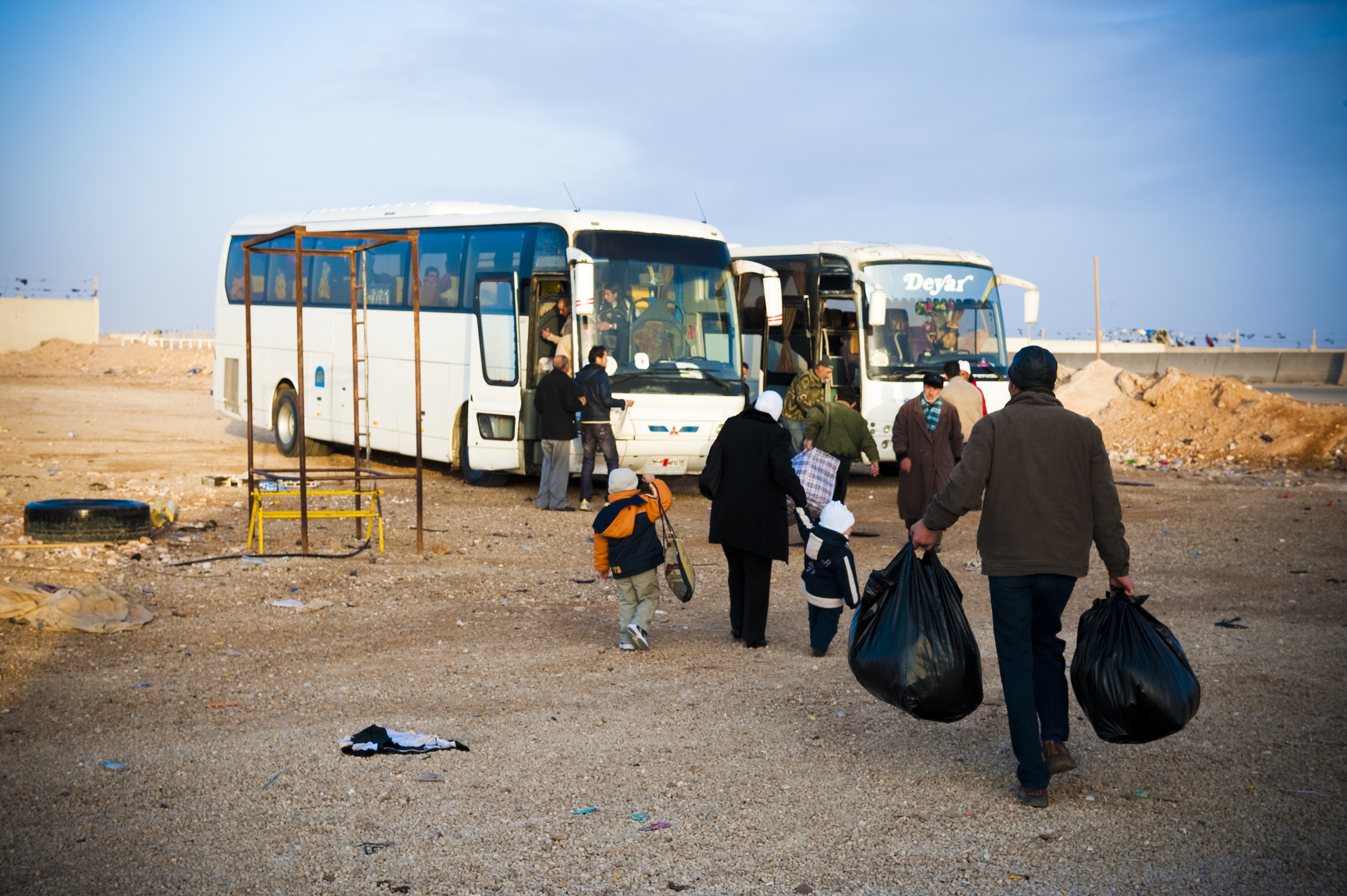Conditions deteriorate for 2,000 Palestinians stuck at Iraq-Syria border
Conditions deteriorate for 2,000 Palestinians stuck at Iraq-Syria border

GENEVA, 9 November (UNHCR) - The UN refugee agency warned on Friday that the situation for Palestinians trapped in camps at the Iraq-Syria border was becoming very precarious, with nearly 2,000 people facing deteriorating weather conditions.
The population of Al Tanf camp in the no-man's land between Iraq and Syria increased to 437 in recent weeks when Syrian authorities took to the camp an additional 97 Palestinians who had fled from Iraq into Syria during the past year on forged documents.
Another camp inside Iraq, Al Waleed, is currently hosting 1,560 Palestinian refugees and the number is expected to increase as new families continue to arrive at the camp. UNHCR estimates some 13,000 Palestinians are still living in Baghdad.
UNHCR staff report that 30-40 persons arrive on a weekly basis fleeing ongoing threats and attacks in Baghdad. The conditions in the camp, located in the desert near the border with Syria, are harsh, especially with the approaching winter.
"We are increasingly worried about the plight of Palestinian refugees, particularly the women, children and elderly, who remain stuck on the border between Iraq and Syria," said Andrew Harper, head of UNHCR's Iraq Support Unit.
"This group, which has already suffered greatly, now face deteriorating conditions as winter approaches. They are stuck in tents with little or no protection from violent sandstorms," he said. "We are continuing to talk to several governments, both within and outside the region, to seek the urgent relocation of this group."
UNHCR is seeking solutions for the refugees both within and outside the region. Earlier this year, the UN refugee agency appealed for specific support and urgent medical resettlement for vulnerable and sick children in Al Waleed camp as they are unable to find medical treatment in Iraq.
So far UNHCR has resettled one family of eight with several sick children from the camp to Norway in August. Another 11 medical cases submitted for resettlement are awaiting approval. Meanwhile, UNHCR staff continue to identify other Palestinian medical cases, such as cancer patients and children with birth defects, who need urgent care. So far, UNHCR has only had positive indications from Chile and Sudan and continues to look for additional solutions.
UNHCR has been working closely with partners such as the International Committee of the Red Cross (ICRC) and the Palestinian and Syrian Red Crescent Societies to improve the living conditions of the refugees in the camps.
However, there has been some good news for the Palestinians. On Monday, Ruweished camp in Jordan was emptied when the last families left for resettlement in Brazil. The camp, which once provided shelter for some 1,000 refugees, is not expected to reopen.
Located about 70 kilometres from the border with Iraq, it was set up in 2003 and housed Somalis and Iranian Kurds as well as Palestinians and Iraqis fleeing violence in Iraq. Most were resettled in third countries, including Australia, Canada, Denmark, New Zealand, Sweden and the United States.








